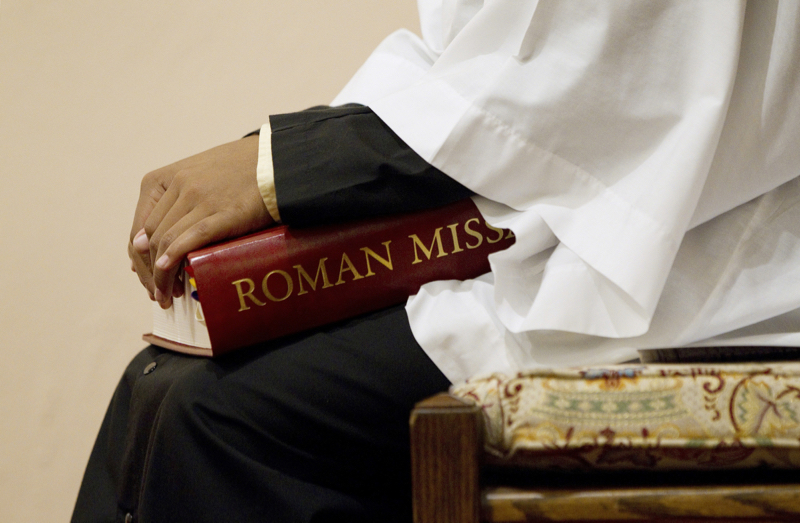Hopes are rising that the current translation of the Roman Missal in use in parishes throughout England and Wales could be revisited and even that 1998 translation of the Roman Missal could yet be revived in some form.
The Tablet has seen the letter from the Congregation for Divine Worship that was interpreted by the bishops of England and Wales as ruling out an alternative to the current, widely-criticised 2010 translation of the Missal.
Historian and academic Eamon Duffy criticised the 2010 translation in The Tablet as "archaic, verbose and in places frankly unintelligible" and retired bishops Crispian Hollis and Thomas McMahon are among those who have written mea culpa etters confessing that sometimes, the conference "failed to do justice" to something as important as translations for the Missal.
The bishops issued their statement that the Pope's motu proprio "Magnum Principium", which restored responsibility for the liturgy to local bishops' conferences, could not be applied retroactively after they received a letter from the CDW clarifying the Pope's document.
But liturgical experts have told The Tablet that this could be an overly-strict interpretation of the letter, published here in full in English and the original Italian. Tablet editor Brendan Walsh explores the implications in this week's magazine.
The letter refers to the motu proprio, stating: "As such, we all must, with respect and acknowledgement, accept the thrust of this Pontifical document, of the motivations and principles raised in it, in a particular way, the intention that brought about the modification of this canon, namely to 'make the collaboration between the Holy See and Bishops Conferences easier and more fruitful'. The Pope, in fact, wishes 'a constant collaboration full of mutual respect, vigilance, and creativity'.
"The motu proprio oes not have retroactive force. The important outcomes come to maturity in recent years, in obedience to the discipline up until now in force, retain their value. For the future, the guidelines concerning liturgical translations are to be interpreted in the light of what has been indicated by the Holy Father.
"In recalling the genuine responsibility of Bishops’ Conferences, the new norms do not fail to underscore the grave task of fidelity in translating texts for liturgical prayer that belongs to the Bishops, who must guarantee the unity of the Church that celebrates the Mystery of Christ. Liturgical adaptations require discernment and the sensus Ecclesiae, with the awareness that no one is master of the holy mysteries that we celebrate, rather, we are all servants, obedient to the mandate received from the Lord Jesus."
The author, undersecretary Fr Corrado Maggioni S. M. M., also states: "The Dicastery will provide, in due time, further indications of a practical and procedural nature."
John Wilkins, author with Gerald O'Collins SJ of "Lost in Translation" about the 2010 English translation of the Missal, told The Tablet: "The retroactive ban is really not necessarily something that follows from this letter. Certainly the letter is not angled against 1998. It is not the reason the letter was written.
"The letter was sent to presidents of bishops’ conferences everywhere, not just the English-speaking conferences. It is simply saying that no statute is written retroactively. It is saying to bishops’ conferences that have followed Liturgiam Authenticam and produced texts from that, that is ok. They do not need to produce a new translation. It does not mean they cannot do so if they want to. It makes me a little surprised that the Bishops of England and Wales took such a decided view, so quickly.”
He added: “The Pope has made it clear that faithfulness is faithfulness to the text, but also faithfulness to the language into which the text is translated – the receptor language. And in the third place, it is faithfulness to the congregations to whom the translation is being addressed.”
The letter also says there will be further elucidations. Wilkins said: “I hope these elucidations will emphasise that understanding of what faithfulness is."
Pic: Catholic News Service
Wish to comment on this story? Find The Tablet on Facebook and Twitter.



 Loading ...
Loading ...